Why Are All Pop Star Interviews Like That?
Thoughts on Jake Shane and the stanification of media
Hello! Thank you for reading. I’ll be posting monthly essays/interviews on pop and politics here. Please be sure to subscribe, and follow me on social media (my Instagram and X), so you can follow my other writing and work.
Ok, now on to the show!
Pop PR cycles have incorporated a new beat to their familiar song.
Yes, there are still the magazine covers and fan events, and since Brat, a perilous increase in hectic last minute pop star pop ups. But in the last year or so, a new world of interview mainstays has become central to the rhythm of the roll out.
It’s a world I find somewhat troubling because it masquerades as media, but is really closer to Official Standom. Maybe it’s simply entertainment. But its perilous proximity to a seemingly serious “album sit down” means I feel called to diagnose this subgenre.
Let’s call it “The Girls and Gays Pop Star Sit Down.”
Of this category there are a few prime purveyors.
Therapuss with Jake Shane
Las Culturistas with Matt Rogers and Bowen Yang
Call Her Daddy with Alex Cooper
Honorary Mention: Zane Lowe on Apple Music (straight man but the affect is the same)
What unites all of these pieces of media is a giddy sensibility where the host has the affect and enthusiasm of a super fan.
The pop star, in turn, acts bashful and pleased and at least appears to model a sense of safety and comfort, which in turn, makes the viewer feel as if they’re part of this intimate gabfest with their fav.
These types of interviews, now so central to the pop ecosystem, essentially codify stan culture’s uber-emotional tone, making the weepy sentimentality of super fan discourse the official company line.
The normalization of this screaming, crying affect makes it harder for all of us to discuss art as art. It implies that if you’re not weeping, you’re soulless.
This shift towards stan sentimentality in pop interviews is most embodied by internet creator Jake Shane.
Shane became famous on TikTok for videos of him “reenacting” historical events like Abe Lincoln getting shot, or scenarios, like a chicken laying an egg, as himself: a goofy young man.
As his status online rose, he also talked more and more about his OCD, anxiety and prescription treatment. He carved a niche in culture that was equal parts absurdist (the silly gay guy fluent in bits) and deeply vulnerable and self-effacing, and thus approachable to all.
It was an affect that worked well on the interview podcast he started soon after his rise, “Therapuss.” On it, he talks to stars like Charli xcx, Lorde, Camila Cabello and Benito Skinner about their work and life, taking on the role of the “therapist” within the proverbial “therapuss.”
Part of what made his show pop off, other than his wild access to top talent, is that, whether genuine or not, Shane is seemingly an adoring fan of everyone he sits down with.
The moments from the show that get the most traction on social media are when he emotionally spazzes out about his interviewee’s discretion or art, serving as the stand in for the audience member who presumably would also be moved to tears by the idea of getting early access to Lorde’s new album.
These are not so much interviews then, as they are love fests, or in their more therapeutic moments, cross confessionals where Shane opens up about his own problems, creating room for the celebrity to “get real” too.
 Tiktok failed to load.
Tiktok failed to load.Enable 3rd party cookies or use another browser
Part of Shane’s appeal is that his viewers perceive him as a proxy for themselves. His openness about his struggles with his mental health, sexuality and dating makes him relatable to a young audience that is similarly plagued by uncertainty and doubt.
But he’s able to express these relatable sentiments while still being enmeshed socially and culturally within A-list culture. He is very close friends with Sofia Richie (son of Lionel, sister of Nicole, ex of Justin Bieber, and now wife of Elliot Grainge, CEO of Atlantic Music Group).
I have no doubt that publicists are now genuinely eager to book talent on his show, but his path to such open access, surely (at least partially) has its roots in his glitzy social milieu.
He is thus able to scratch the ultimate itch for our parasocial culture: to be strikingly vulnerable and open about your struggles while still in proximity to, and beloved by, our culture’s coolest.
Shane’s pop star kiki’s then are their own kind of fan fiction.
 Tiktok failed to load.
Tiktok failed to load.Enable 3rd party cookies or use another browser
I wouldn’t harp on Shane’s star studded therapy sessions if it wasn’t representative of the overall tenor of so much pop music media right now.
Other shows, like Las Culturistas with comedians Matt Rogers and Bowen Yang, walk a similar tight rope, with the hosts expressing outright fanfare at their guest’s presence, while facilitating an easy convo about life, love and art.
Las Culturistas has been around for nearly a decade, but in recent years, it has risen in prominence via both hosts’ upward trajectories. And the show’s status has been supercharged via its inclusion in the pop ecosystem, with Last Culturistas having key sit downs with Chapell Roan, Mariah Carey, Tate McRae, Kelly Clarkson and others (not that relevant, but just today they released an episode with Michelle Obama).
It’s clear that they’ve become a go-to destination for pop’s brightest stars because their positive, enthusiastic ethos helps gin up a similar sentiment in others.
The same story of emotional applause applies to Call Her Daddy, Alex Cooper’s media juggernaut. Cooper’s interviews with stars are casual, yet highly professionalized girl’s girl sit-downs where she takes on the affect of a close confidant and supporter, always affirming the ideas and feelings of her guest.
And it applies too to Zane Lowe’s show on Apple Music, where Lowe, the supposed consummate professional, similarly takes on a strangely lauditory and weepy tone with artists.
 Tiktok failed to load.
Tiktok failed to load.Enable 3rd party cookies or use another browser
It’s clear: these interviews are fulfilling a demand.
This is pop music media in an era where stan culture is all encompassing.
Where cliche’s like “Gaga’s music saved my life,” no matter how genuinely expressed, have become the cultural oxygen.
Pop stars, no longer mere singers, are now representatives of a whole fan community, and by proxy, subculture.
And pop stars, positioned as emotional forces, have become de facto spiritual leaders: the rare figures whose art can “help” young people come out of the closet, feel less alone, and find community.
Their art and their very existence represent a great bright hope at the end of some uncertain tunnel. With that, these interviews are not thoughtful sit downs with an artist presenting their work, but expressions of the extreme emotional forces that are flowing through pop music culture. They are more ritual than conversation.
Look, very few want hard hitting interviews or sober critiques of pop these days.
Critical writing on music is a fallow, fallow field, though myself and my brave colleagues try our best.
If you want to see the pure apathy the online pop community has for any attempt to treat artists as artists and not as critically immune diarists or emotional gurus, just look at any of my or my colleagues’ DMs or replies.
When everyone from Halsey to the indie band Tennis post snide and snooty calls to harangue Pitchfork critics, it becomes clear that any of us who are trying to be pop-critical have little support or back up.

I’m not saying any of this to advocate for a sort of hard hitting Barbara Walters-tone to pop star interviews. But I think we can split the difference, or at least try to advocate for a modicum of seriousness.
Or at the very least, get curious about why these parasoical cry sessions seem to facilitate such virality.
These interviews are not the cause of this rabid, weepy fanfare. But they codify and amplify it. And I think, maybe, by naming that, we can begin to see them a bit more soberly.
I say all of this while also knowing that the social impetus to be kind and lauditory in interviews is strong.
I struggle with this often.
I’ve interviewed artists I love. I’ve interviewed artists I feel meh towards. A few too, whose work or music I don’t particularly love. It’s the job.
The simple human impulse to be smiley and kind and congratulatory is strong .And when talking to those whose work I deeply admire, the pull towards enthusiastic hysterics is magnetic.
I often beat myself up after interviews for falling into these traps.
I do so because I think that my job isn’t necessarily to be nice and smiley and become friends with Doechii. But because ultimately my goal is to produce understanding and insight. And often friction is required to get past the cliches or talking points artists so often fall back on.
Not every interview needs to be cutting nor profound. But a sense that we’re striving towards understanding should at least guide our work. That’s the bare minimum.
In a healthier music media ecosystem there would be space for variety. Some fun and frivolous moments, and many others that are a bit more measured.
But I sense that the lean reality of media means that gravity is pulling us towards this more profitable model, one that feeds the sugar frenzy of stan culture.
I know many are doing something different. I know I try my best to. But I wonder if the general public truly wants that? And if not, maybe it’s time for us to do the hard work of making a case for it again.
Let’s get serious my loves.
Thanks for reading! For those of you who take pop music discourse seriously: where do you go for these more serious discussions and interviews about pop music? I have my own ideas, but I’d be curious to discuss with you all here <3


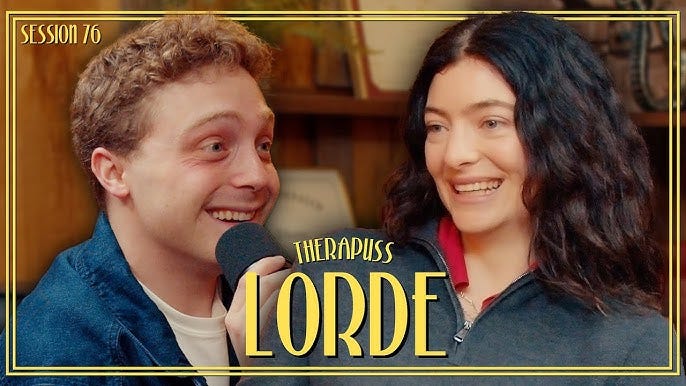
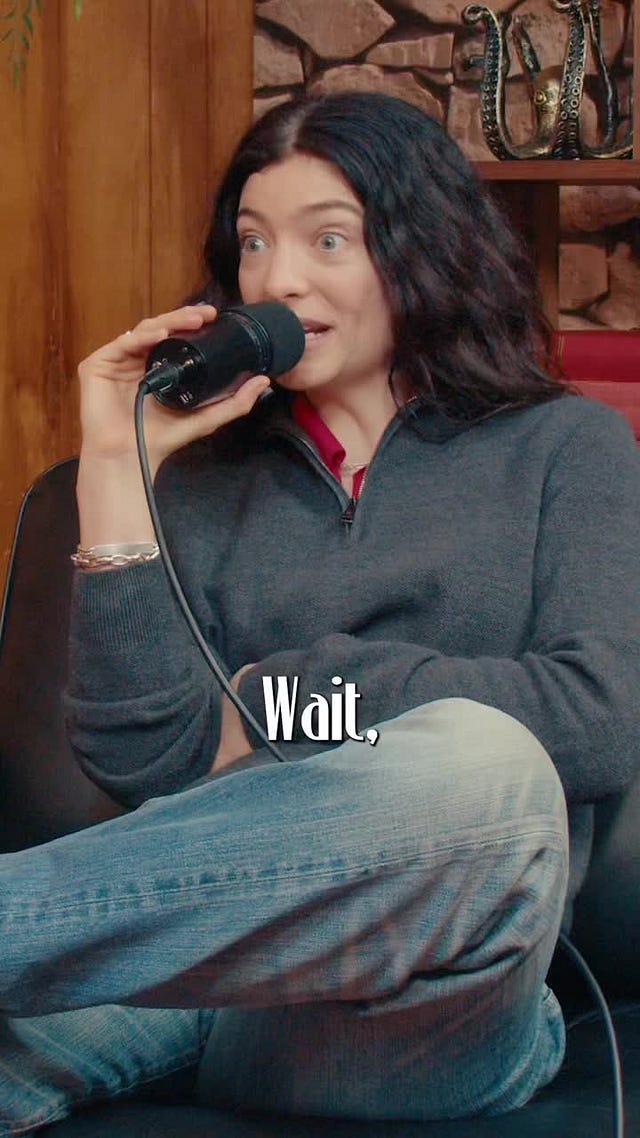
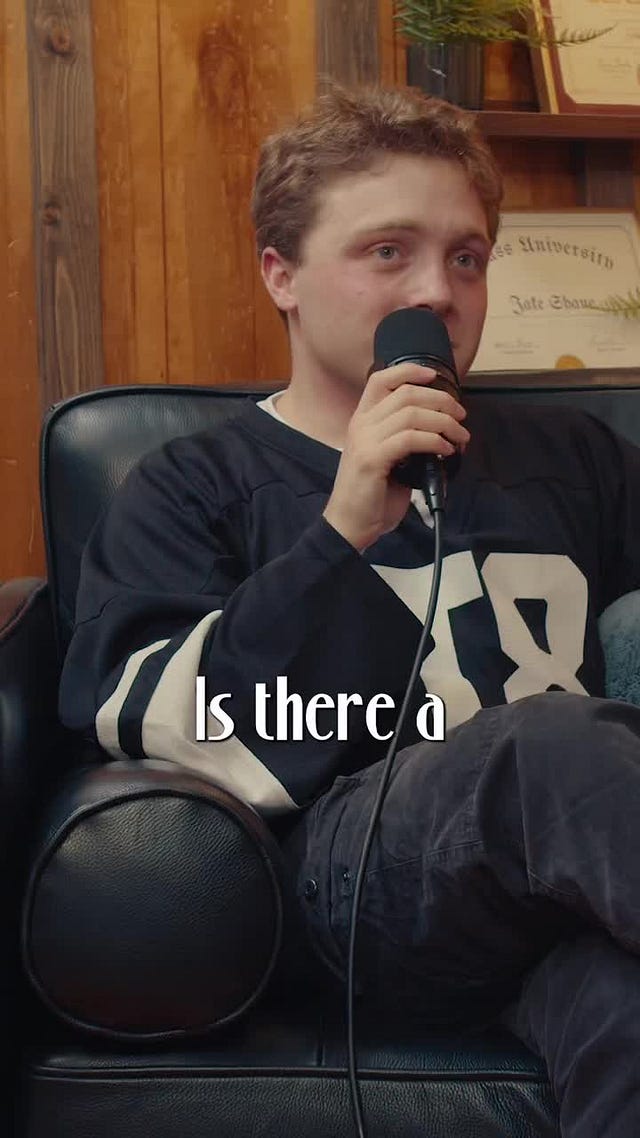
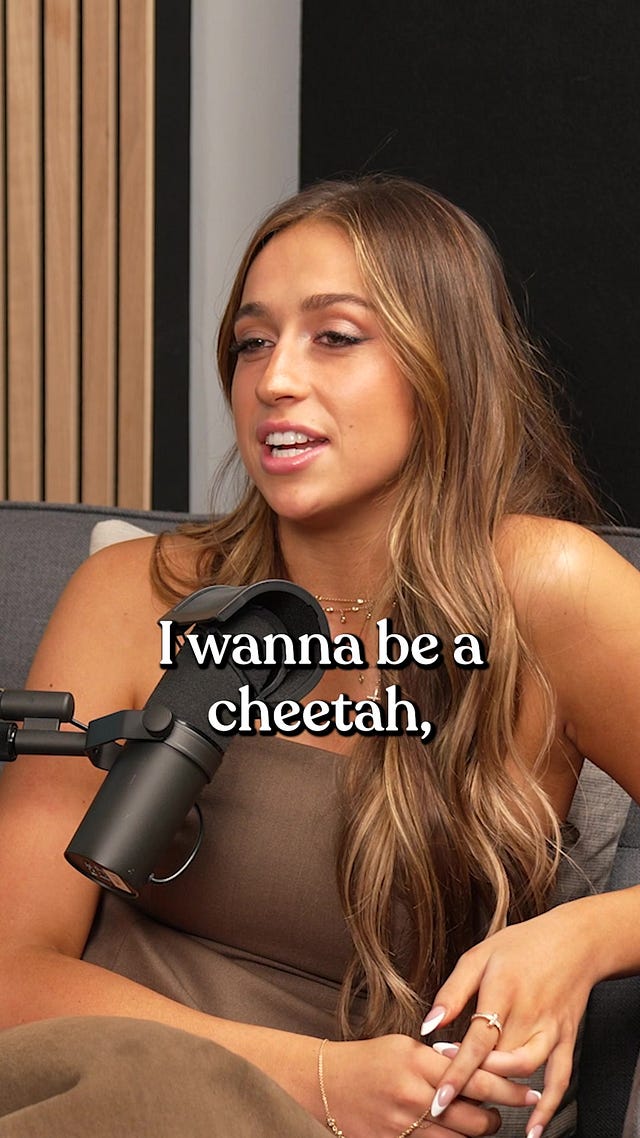

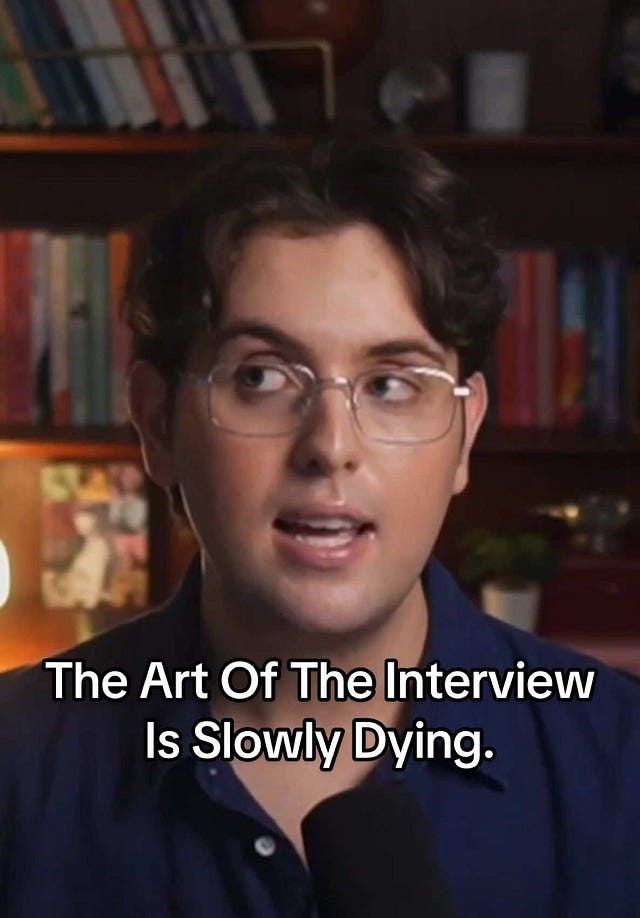
would love to see more artists go on nyt popcast like addison rae did recently, you can rly tell the difference between the jake shanes of the world and real journalists
I love your point about how friction can be useful or sometimes necessary... as you put it, "required"... totally agree. Lowe, particularly, has always really irked me, too, and after having recently watched a couple of Shane interviews for the first time, I really feel the fatigue with music media and almost a little grossed out at the strange... sometimes useless, pandering sixty, ninety minute conversations. Also, I always am so interested in hearing about the actual music and its creation and why certain sonic choices were made, etc. and those moments are virtually nonexistent in... musician interviews...somehow. Anyways, love this piece.